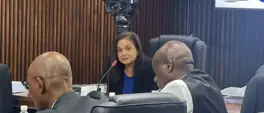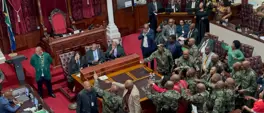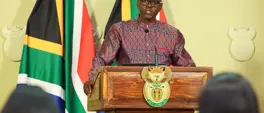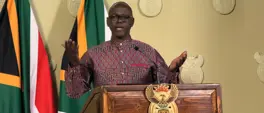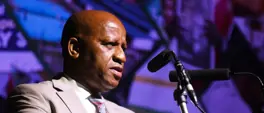Ramaphosa takes his appeal against high court ruling on NHI to ConCourt
Zoleka Qodashe
2 June 2025 | 10:35In May, the Gauteng High Court in Pretoria found that the president’s decision to ratify the bill was reviewable and ordered that he furnish the court with the record that led to the decision.
JOHANNESBURG - President Cyril Ramaphosa has taken his appeal against a high court judgment on the National Health Insurance (NHI) to the Constitutional Court.
In May, the Gauteng High Court in Pretoria found that the president’s decision to ratify the bill was reviewable and ordered that he furnish the court with the record that led to the decision.
In papers before the apex court, the president argued that the high court potentially breached the separation of powers principle and permitted the lower courts to entertain matters that should only be traversed by the highest court.
ALSO READ:
• Motsoaledi defends spending R9m on lawyers, says health dept being sued on several fronts over NHI
• BHF confident it will be able to prove the NHI Act is unconstitutional
President Ramaphosa has relied on section 79 subsection 4 of the Constitution, among others, in his application for leave to appeal the High Court in Pretoria’s judgment.
The section stipulates that the president must refer a bill to the Constitutional Court for a decision on its constitutionality if he, after sending it back to Parliament, has reservations over the draft law.
In papers before the Constitutional Court, the president argued that the High Court in Pretoria did not have the jurisdiction to entertain an application to challenge the enactment of the NHI and that only the Constitutional Court had this power.
Ramaphosa argued that the effect of the high court judgment was that it allows parties to bypass this mechanism and effectively review the constitutionality of a bill.
The president said this had implications for the separation of powers doctrine and also had the effect of stalling the legislative process and his ability to perform his functions as head of state.
Get the whole picture 💡
Take a look at the topic timeline for all related articles.
Trending News
More in Local
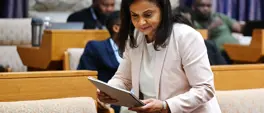
15 December 2025 18:44
EWNTV NEWS BULLETINS | Batohi walks out, Ntuli survives vote and Starlink BEE row escalates

15 December 2025 15:40
Gauteng Education mourns 'major loss' after Kempton Park principal killed in Tembisa house robbery

15 December 2025 15:13
Cape Town marine sewage outfall dispute heads to independent appeals panel


